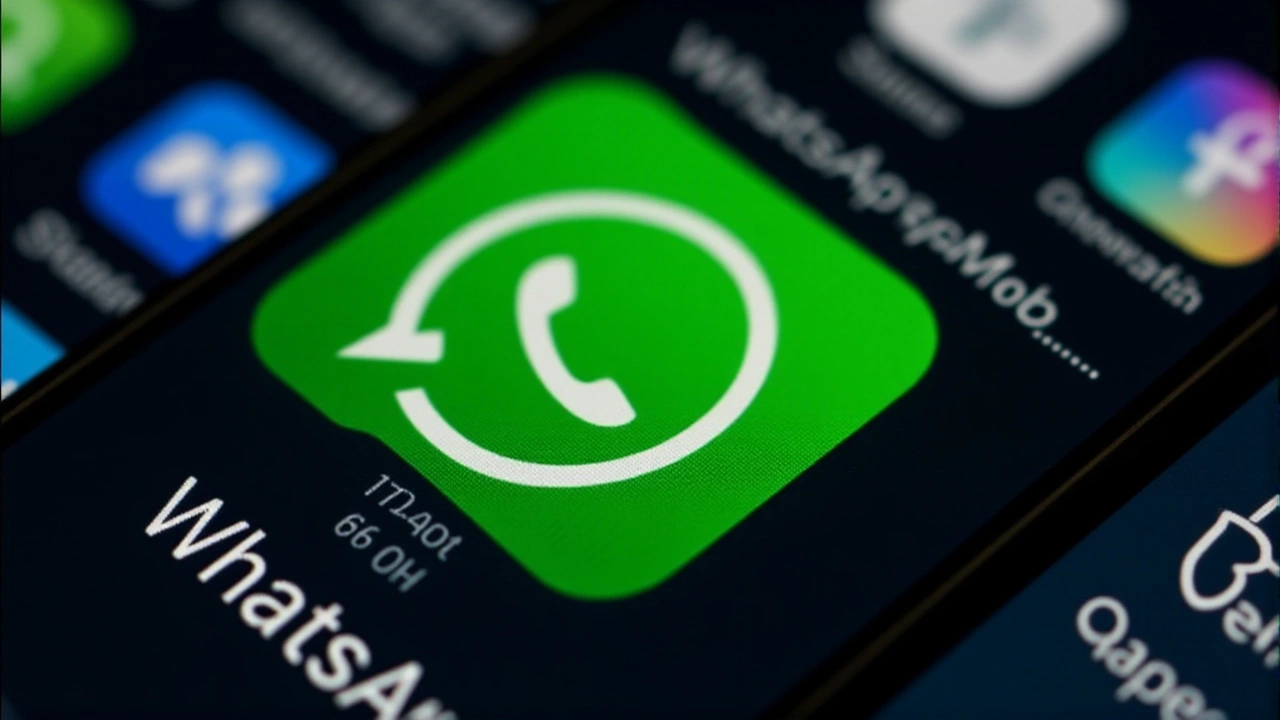
For the first time since its founding in 2009, WhatsApp is no longer a walled garden. On November 14, 2025, the company announced a sweeping change: users across the European Economic Area will soon be able to send messages to people on rival apps like BirdyChat and Haiket—all while keeping end-to-end encryption intact. It’s not just a feature update. It’s a legal surrender. And it’s happening because the European Union demanded it.
The DMA Forced Their Hand
The Digital Markets Act, passed in 2022 and fully in force since March 2024, labeled WhatsApp and Messenger as "gatekeepers"—digital giants with so much market power they can’t be allowed to lock users in. The law didn’t ask nicely. It ordered them to let other messaging services talk to theirs. Failure meant fines up to 10% of global revenue. So Meta did what it had to: build the bridge."This isn’t about preference," said Dick Brouwer, WhatsApp’s engineering director, in a Wired interview. "It’s about giving people choice without compromising security." The twist? Meta didn’t just slap on an API. They built a strict vetting system. Only apps that match WhatsApp’s encryption standards—down to the key exchange protocols—get approved. That’s why, for now, only BirdyChat and Haiket are in. Both are European startups that spent months proving their tech could handle the load without leaks.
What Works—and What Doesn’t
When you turn on the feature, you’ll be able to send texts, photos, voice notes, videos, and files to users on those two platforms. But here’s the catch: if you send a disappearing message, it won’t vanish on their end. Stickers? Gone. Status updates? Not visible. Advanced privacy controls like who can see your last seen or profile photo? Those stay locked to WhatsApp-only chats.
"It’s like handing someone a key to your house," explained one EU digital policy analyst who spoke anonymously, "but they can’t open your safe or use your kitchen. They can sit at the table, but they can’t touch your spices." That’s intentional. Meta is trying to balance compliance with control. The company is also labeling every message from a third-party app with a small badge—"From BirdyChat," for example—so users know they’re not chatting within WhatsApp’s full ecosystem.
Users get to choose: merge those chats into their main inbox, or stash them in a separate "Third-Party Chats" folder. That’s a smart move. People who value simplicity won’t be overwhelmed. Those who want to keep things tidy can.

Why Desktop Is Missing—and What’s Next
Here’s something odd: the feature launches only on Android and iOS. No desktop. No web. No tablets. Meta says it’s because they need more time to build abuse controls at scale. That makes sense—cross-platform messaging opens doors for spam, scams, and automated bots. But it’s also a signal. This rollout isn’t meant to be massive yet. It’s a test.
Group chats with third-party users? Not yet. That’s coming later, once more apps meet the technical bar. Meta confirmed it’s already reviewing applications from five other European services. One is a French encrypted chat app focused on journalists. Another is a Polish platform popular with small businesses. If they pass, they’ll join the club.
Real-Life Impact: Families, Small Businesses, and Beyond
For families spread across apps, this is huge. Imagine your mom still uses Haiket because her friends are there. Your brother switched to BirdyChat after a privacy scandal. You? You’re locked into WhatsApp. Now, you can all talk without forcing anyone to change.
Small businesses are already salivating. A bakery in Lisbon can now reply to customer inquiries from WhatsApp, BirdyChat, and Telegram—all from one screen. No more juggling three apps. No more missed messages. That’s productivity. That’s fairness.
But there are risks. If a third-party app’s data policy is looser than WhatsApp’s, sensitive info could leak through the back door. And what happens when a user on Haiket shares a photo with a WhatsApp user who then screenshots it? Who’s liable? The law doesn’t say.

A Global Precedent?
Meta insists this is only for the European Economic Area. No plans for the U.S., India, or Brazil—yet. But that’s the dangerous part. If this works? Other regulators will notice. The UK is watching. Canada is listening. The U.S. Congress has already held hearings on similar rules.
"This isn’t just about Europe," said Dr. Lena Fischer, a digital rights professor at the University of Amsterdam. "It’s about proving that interoperability can be secure, scalable, and user-controlled. If Meta nails this, they’ve just set the global standard. If they fail? They’ll be the reason every country rushes to regulate messaging apps."
For now, it’s a quiet revolution. No fanfare. No press tour. Just a toggle in Settings. But the implications? Massive.
Frequently Asked Questions
Can I still use WhatsApp normally if I don’t enable third-party chats?
Yes. The feature is entirely optional. Turning it off reverts your experience to the classic WhatsApp interface, with no changes to your contacts, media, or privacy settings. Your chats remain fully encrypted and isolated from external apps unless you explicitly opt in.
Why are only BirdyChat and Haiket supported right now?
They’re the only two services that have passed WhatsApp’s rigorous technical and security validation, including matching end-to-end encryption protocols, server infrastructure standards, and abuse prevention systems. Other apps must apply and prove compliance before being added—no exceptions.
Will disappearing messages work between WhatsApp and third-party apps?
No. Disappearing messages, stickers, and status updates are exclusive to WhatsApp-to-WhatsApp communication. Third-party messages will appear as standard, permanent texts with limited formatting. This limitation is intentional to prevent security gaps and ensure consistent user expectations.
Is my data safer with this feature or less safe?
It depends. Messages stay end-to-end encrypted only if the third-party app meets WhatsApp’s exact standards. But if a partner service has weaker data policies—like storing metadata or sharing with advertisers—you’re still exposed. WhatsApp doesn’t control those policies, only the encryption. Always check your contact’s app’s privacy terms.
When will group chats with third-party users be available?
Meta has confirmed group messaging with external apps is in development but will launch only after partner services demonstrate they can handle moderation, spam control, and encryption at scale. No official date has been given, but internal timelines suggest early 2026.
Could this feature come to the U.S. or other countries?
Meta has not committed to a global rollout. The feature is currently limited to the European Economic Area due to DMA requirements. However, if it proves successful and regulators elsewhere adopt similar rules, expansion is likely—though not guaranteed. Watch for pressure from the UK, Canada, or even California’s new digital privacy laws.
 Entertainment
Entertainment